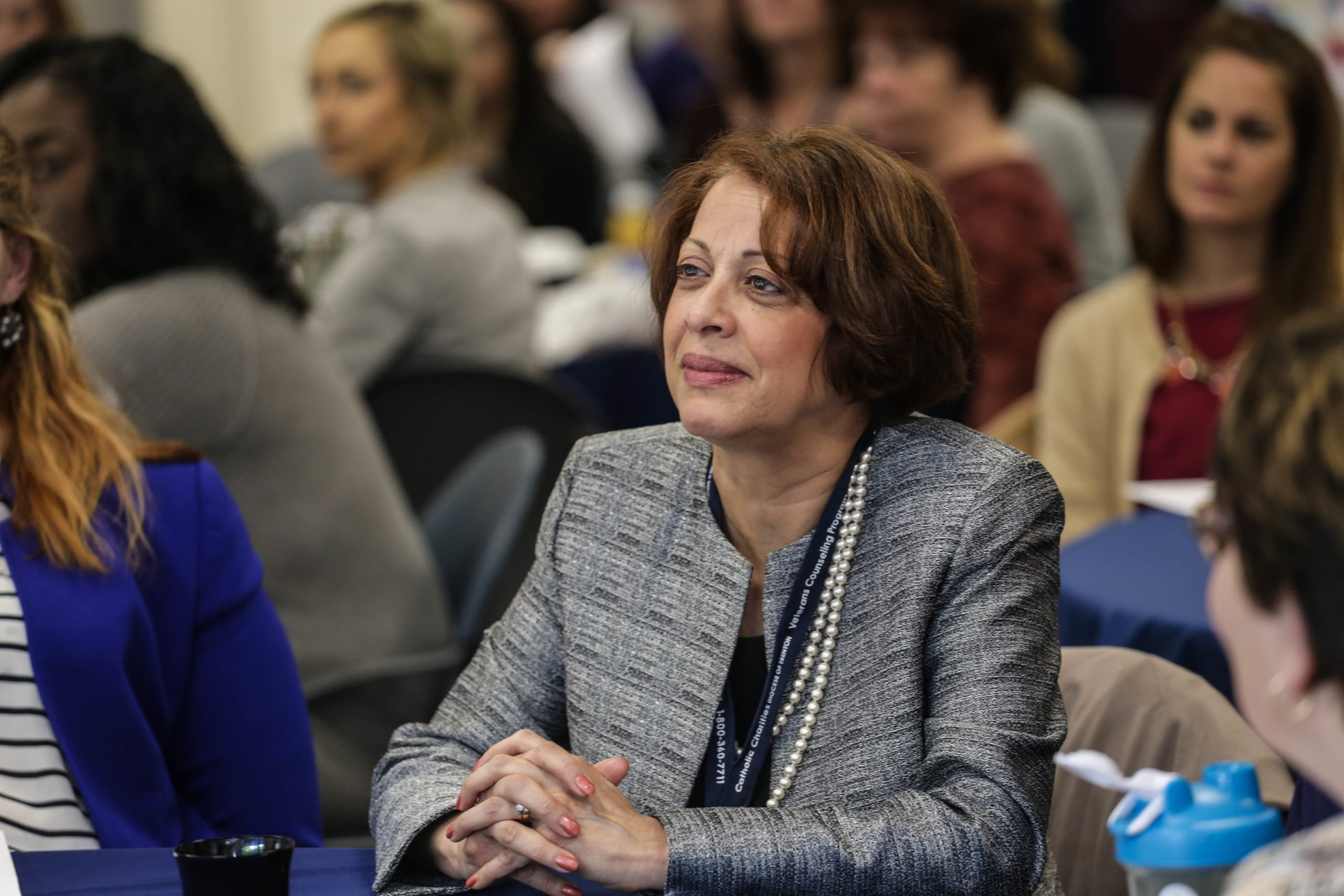Grants will improve census accuracy, outreach to “hard-to-count” populations
 The State of New Jersey has awarded Catholic Charities, Diocese of Trenton a $40,000 grant to improve census reporting among people considered hard to count, including immigrants, youth, senior citizens, and people who are mentally ill, live in low-income households, or struggle with homelessness.
The State of New Jersey has awarded Catholic Charities, Diocese of Trenton a $40,000 grant to improve census reporting among people considered hard to count, including immigrants, youth, senior citizens, and people who are mentally ill, live in low-income households, or struggle with homelessness.
Community Services, Catholic Charities’ poverty-reduction arm, applied for the grant, which is administered by the state’s 2020 Complete Count Commission Grant Program. The money will help the agency improve census reporting in Burlington and Ocean counties.
Catholic Charities also is part of a Complete Count committee in Mercer County, which this week earned a $35,000 state grant to do outreach and improve census reporting in the state’s capital county. That committee – a coalition of about 25 nonprofits organized by Arm in Arm – also received $10,000 from the Princeton Area Community Foundation to improve census reporting.
Get counted today for a better tomorrow
Census underreporting is a persistent problem. In 2010, the census return rate in Trenton, for example, was less than 60 percent, according to Arm in Arm.
That’s concerning because “government agencies will use census data for the next 10 years to shape our communities and decide what resources to allocate to them,” said Noelle Davies, Community Services’ business manager. “Often, the populations that are hardest to count are the very residents who need additional resources. For example, a family in the midst of eviction or household restructuring may live in temporary housing like a motel, a car, or a friend’s couch – so they wouldn’t receive census mail or be in a place census workers could find them to facilitate participation. That means they probably will not be counted. But counting people in such situations is critical to helping local governments understand the need for affordable housing.”
 Marlene Laó-Collins, Catholic Charities’ executive director (pictured, right), agreed: “We count on federal dollars for a number of things – rental assistance for housing, Medicaid dollars so we can help those with addiction and behavioral health concerns, our domestic violence programs, food and nutrition – there are so many programs that rely on federal funding to serve the populations who come to our doors every day. We won’t get what is due to New Jersey if we don’t count everyone.”
Marlene Laó-Collins, Catholic Charities’ executive director (pictured, right), agreed: “We count on federal dollars for a number of things – rental assistance for housing, Medicaid dollars so we can help those with addiction and behavioral health concerns, our domestic violence programs, food and nutrition – there are so many programs that rely on federal funding to serve the populations who come to our doors every day. We won’t get what is due to New Jersey if we don’t count everyone.”
Census data also helps authorities and others devise long-term strategic plans for growing communities – and know how many schools, hospitals, roads, social services, and more are needed, Davies added.
Answers are confidential
Counting immigrants, including those without papers, is especially critical, Laó-Collins and Davies agreed.
“People who have recently immigrated to the U.S. may not have a permanent address. They also may not be aware of the purpose of our country’s census and may feel defensive toward government attempts to be counted, considering our current political climate, especially if there are language barriers,” Davies said.
Laó-Collins added: “There’s a lot of mistrust of government and how census information may be used in the immigrant population. Given the tone of the national discourse around immigration, that’s understandable. So I worry that population won’t be counted adequately because they are afraid. But it’s important for them to be counted – and to be educated about the census. There’s no question about immigration status on the census. Census data does not go to Homeland Security or the IRS. It’s information that will help inform authorities what social services are needed.”
The U.S. Census Bureau is bound by law to keep census data confidential. Answers are kept anonymous and are used to produce statistics.
April 1 is the big day
The 2020 census is the first time people will be able to fill out census forms online (you can also respond by mail or phone). While “Census Day” officially is April 1, counting begins in mid-March, and officials hope most of the 330 million people who live in America will respond by the end of April. After then, the U.S. Census Bureau moves into follow-up mode, dispatching teams into communities to track down non-responders. Census teams will also visit groups and places where reporting historically has been low, such as college campuses, prisons, nursing homes, and senior centers. Final counts go to the President and Congress in December 2020.
In Burlington and Ocean counties, Community Services will use the grant money in its food pantries to provide computer access and census information to facilitate census participation. They also plan several mobile census events, where staff will visit communities in both counties to raise awareness about the importance of census reporting and provide computer access for people to complete census forms.
In Mercer County, Catholic Charities will focus its census outreach efforts at El Centro, which serves the region’s Latino community. Besides encouraging clients to participate in the census, El Centro will serve as a public-access site for people to complete census forms on Mondays, Fridays, and Saturdays, starting in March.
Catholic Charities also will do census education and outreach to clients in all programs in its four-county coverage area.
Barriers to participation
 Community Services is grateful for the state grant, because it will help staff remove barriers, like language, transience and no computer access, that prevent people from participating in the census, Davies said.
Community Services is grateful for the state grant, because it will help staff remove barriers, like language, transience and no computer access, that prevent people from participating in the census, Davies said.
“Many of our families are impoverished and/or experiencing housing instability. Many don’t have technology access and may be temporarily homeless and unable to receive mail or other forms of census access this year,” Davies said. “We also realize that our elderly clients often travel between warmer climates and their homes here in New Jersey, so online participation would be the best way for them to be counted – but they may not be aware nor have the means to participate online.”
Learn more
Learn more about the census by exploring the U.S. Census site here. The New Jersey Institute for Social Justice also has gathered some great information about the 2020 census – and the challenges to accurate reporting – here.
Subscribe for more news
To subscribe to our blog posts and news releases, fill out the fields below.

